The operatic sketch Hin und Zurück (There and Back) was first presented at the Baden-Baden Music Festival on 15 July 1927. The Wikipedia entry, placing the premiere on 17 July will have to be amended, but that Music Festival was a supplementary event following up on the Donaueschingen Chamber Music Days, for which Hindemith had been involved in programming since 1923. The Baden-Baden Festival was intended as an experimental workshop, dedicated in 1927 to the areas of chamber music, sound film, mechanical music and chamber operas.
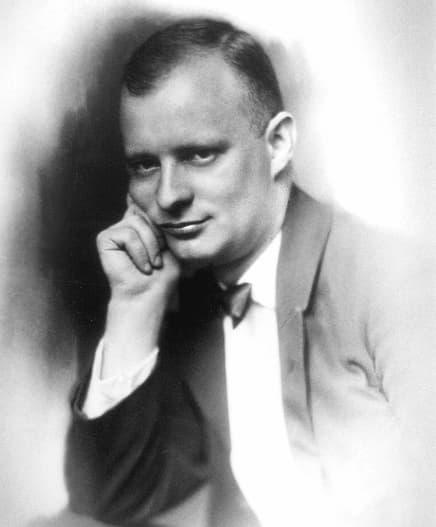
Paul Hindemith, 1923
Paul Hindemith: Hin und Zurück, Op. 45a “Helene enters” (Carl Halvorson, tenor; Jeanne Ommerle, soprano; Richard Holmes, baritone; Robert Osborne, bass-baritone; Austin Wright Moore, tenor; New York Chamber Ensemble; Stephen Rogers Radcliffe, cond.)
Miniature Opera
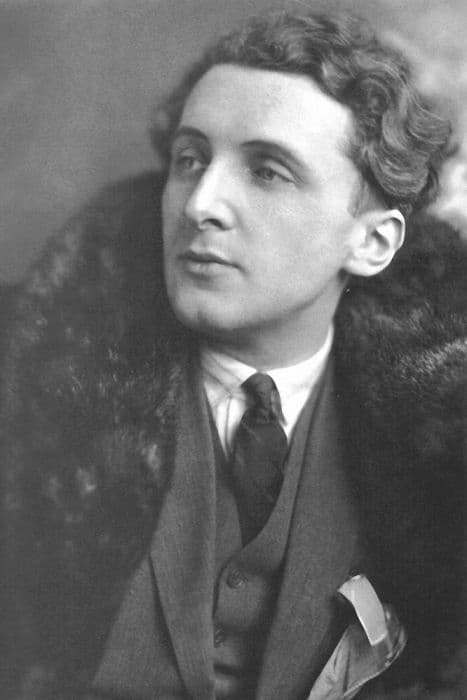
Marcellus Schiffer
The work takes only 12 minutes to perform and pokes fun at both the story and music of conventional opera. It was part of a collection of miniature operas performed that evening, which also included L’enlèvement d’Europe by Darius Milhaud, the Mahagonny-Songspiel by Kurt Weill, and the Princess and the Pea by Ernst Toch.
Paul Hindemith: Hin und Zurück, Op. 45a “What a morning, dearest auntie” (Carl Halvorson, tenor; Jeanne Ommerle, soprano; Richard Holmes, baritone; Robert Osborne, bass-baritone; Austin Wright Moore, tenor; New York Chamber Ensemble; Stephen Rogers Radcliffe, cond.)
The one-act sketch of Hin und Zurück was completed within a few days in May 1927. The text comes from the pen of Berlin cabaret author Marcellus Schiffer (1882-1932), with whom Hindemith would subsequently collaborate on the full-length opera Neues vom Tage (1929). Schiffer, a writer of cabaret songs and revues, was inspired by a comic cinematic trick in which a film sequence is repeated running backwards.
Paul Hindemith: Hin und Zurück, Op. 45a “Happy Birthday” (Carl Halvorson, tenor; Jeanne Ommerle, soprano; Richard Holmes, baritone; Robert Osborne, bass-baritone; Austin Wright Moore, tenor; New York Chamber Ensemble; Stephen Rogers Radcliffe, cond.)
The Plot
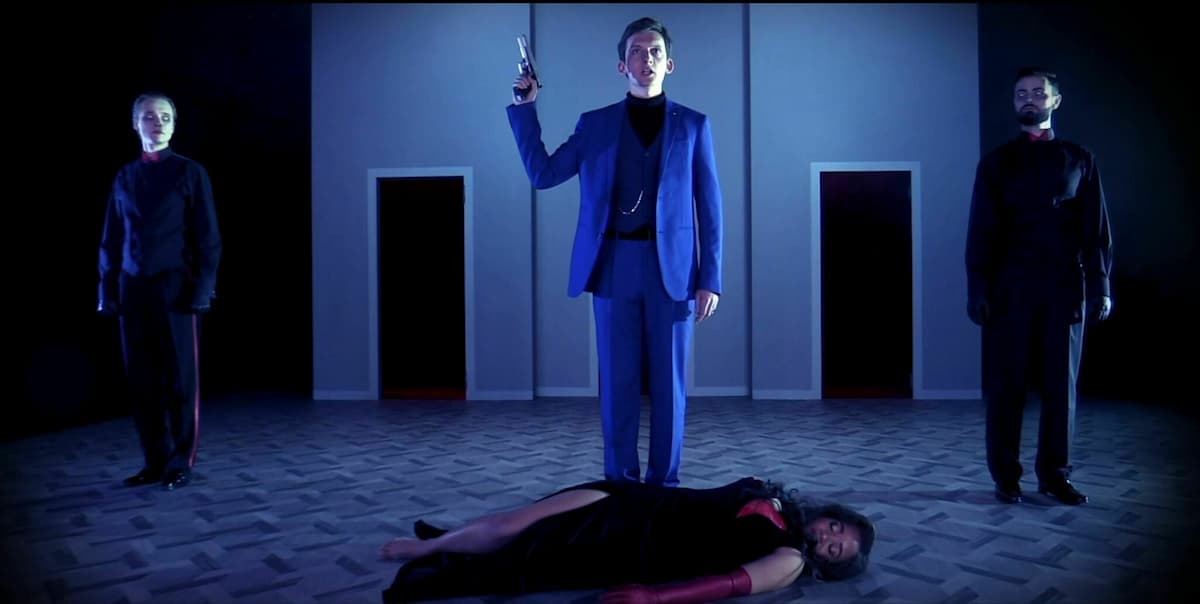
Hindemith’s Hin und Zurück
The plot is a parody of a domestic tragedy. Aunty Emma, totally deaf, sits and does her embroidery in the living room of her niece, Helene. Her husband Robert returns home unexpectedly, bringing her a birthday present. Helene attempts in vain to conceal the receipt of a letter, which she says is first from her dressmaker but then confesses that it is from her lover. When she admits to her affair, Robert is filled with jealousy and shoots his wife.
Paul Hindemith: Hin und Zurück, Op. 45a “Iodine, Calomel, Ipepac, Vaporub” (Carl Halvorson, tenor; Jeanne Ommerle, soprano; Richard Holmes, baritone; Robert Osborne, bass-baritone; Austin Wright Moore, tenor; New York Chamber Ensemble; Stephen Rogers Radcliffe, cond.)
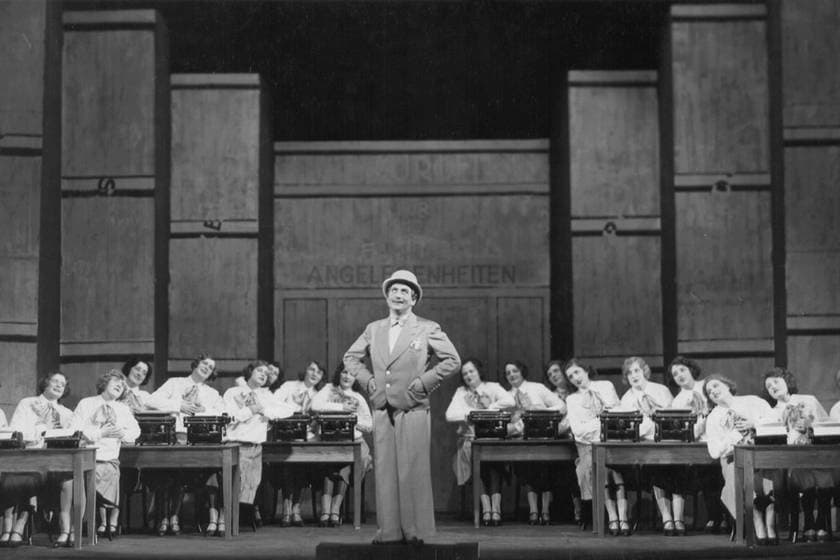
Hindemith’s Hin und Zurück in Mannheim 1930/31
A doctor and nurse arrive on the scene with a list of impressive, ineffectual medicines, and the professor and a caretaker are only able to establish Helene’s death. Robert suddenly realises what he has done and jumps out of the window. Aunt Emma has been the silent witness of all these events, which remain absolutely incomprehensible to her. At the midpoint of the action, a wise man enters and philosophically observes that “seen from the heavens above, it is of no importance whether the path of an individual’s life strays forwards from the cradle to the grave, or whether he dies first and is subsequently born.”
Paul Hindemith: Hin und Zurück, Op. 45a “No one has thought…” (Carl Halvorson, tenor; Jeanne Ommerle, soprano; Richard Holmes, baritone; Robert Osborne, bass-baritone; Austin Wright Moore, tenor; New York Chamber Ensemble; Stephen Rogers Radcliffe, cond.)
To prove his point, the wise man causes the action so far to proceed in reverse. Robert comes back to life, Helene stands up again, the dispute between husband and wife dies down, and the work ends with the untroubled breakfast scene of the beginning. Aunt Emma is sitting in her chair, oblivious to all that has taken place.
Paul Hindemith: Hin und Zurück, Op. 45a “Aspirin, Vaseline, Vaporub, Ipepac” (Carl Halvorson, tenor; Jeanne Ommerle, soprano; Richard Holmes, baritone; Robert Osborne, bass-baritone; Austin Wright Moore, tenor; New York Chamber Ensemble; Stephen Rogers Radcliffe, cond.)
Political Satire
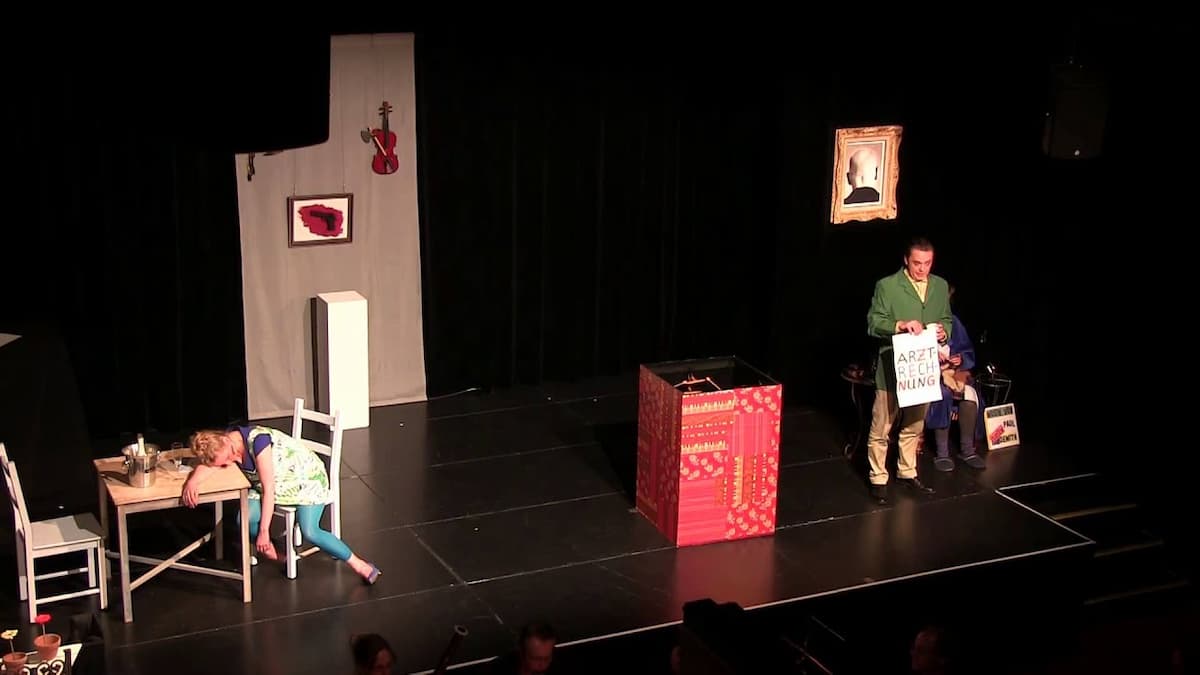
Hindemith’s Hin und Zurück
Schiffer and Hindemith probably intended Hin und Zurück as a political satire on the German middle class of the 1920s, on a society set on a course for disaster, but seemingly oblivious to the impending doom. The actions running as if in fast motion satirise standard scenes from the operatic repertoire, such as deception, jealousy, murder and suicide. The mirror-symmetrical progression of the plot is reflected in the retrogressive order of the individual formal sections, a technique which Hindemith and Schiffer probably recreated from cartoon films.
Paul Hindemith: Hin und Zurück, Op. 45a “I’m dy…no, don’t fire the shot” (Carl Halvorson, tenor; Jeanne Ommerle, soprano; Richard Holmes, baritone; Robert Osborne, bass-baritone; Austin Wright Moore, tenor; New York Chamber Ensemble; Stephen Rogers Radcliffe, cond.)
The Music
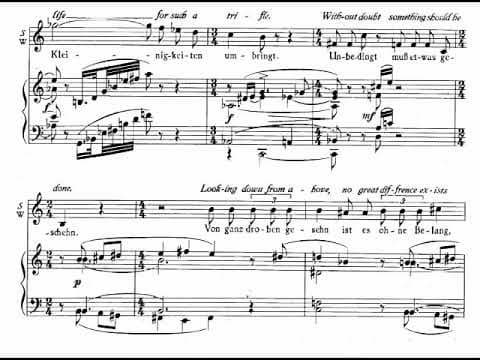
Hindemith’s Hin und Zurück piano vocal score
Hindemith composed the music for a wind ensemble with piano accompaniment, which underlines the work’s cabaret style. The central section, with the wise man’s monologue, is contrasted against the accompaniment of a backstage harmonium.
Along with the libretto, the music of the opera runs backwards halfway through the opera.
Hindemith’s musical language in Hin und Zurück is tonal without being diatonic. The musical numbers also form a palindrome as Hindemith divides the opera into baroque-like short numbers, which are recapitulated after the wise man’s monologue. The work was performed on numerous stages throughout Germany until 1933 when it was banned as “degenerate” by the National Socialists.
For more of the best in classical music, sign up for our E-Newsletter
Paul Hindemith: Hin und Zurück, Op. 45a “Ah! Like new I now awake” (Carl Halvorson, tenor; Jeanne Ommerle, soprano; Richard Holmes, baritone; Robert Osborne, bass-baritone; Austin Wright Moore, tenor; New York Chamber Ensemble; Stephen Rogers Radcliffe, cond.)
